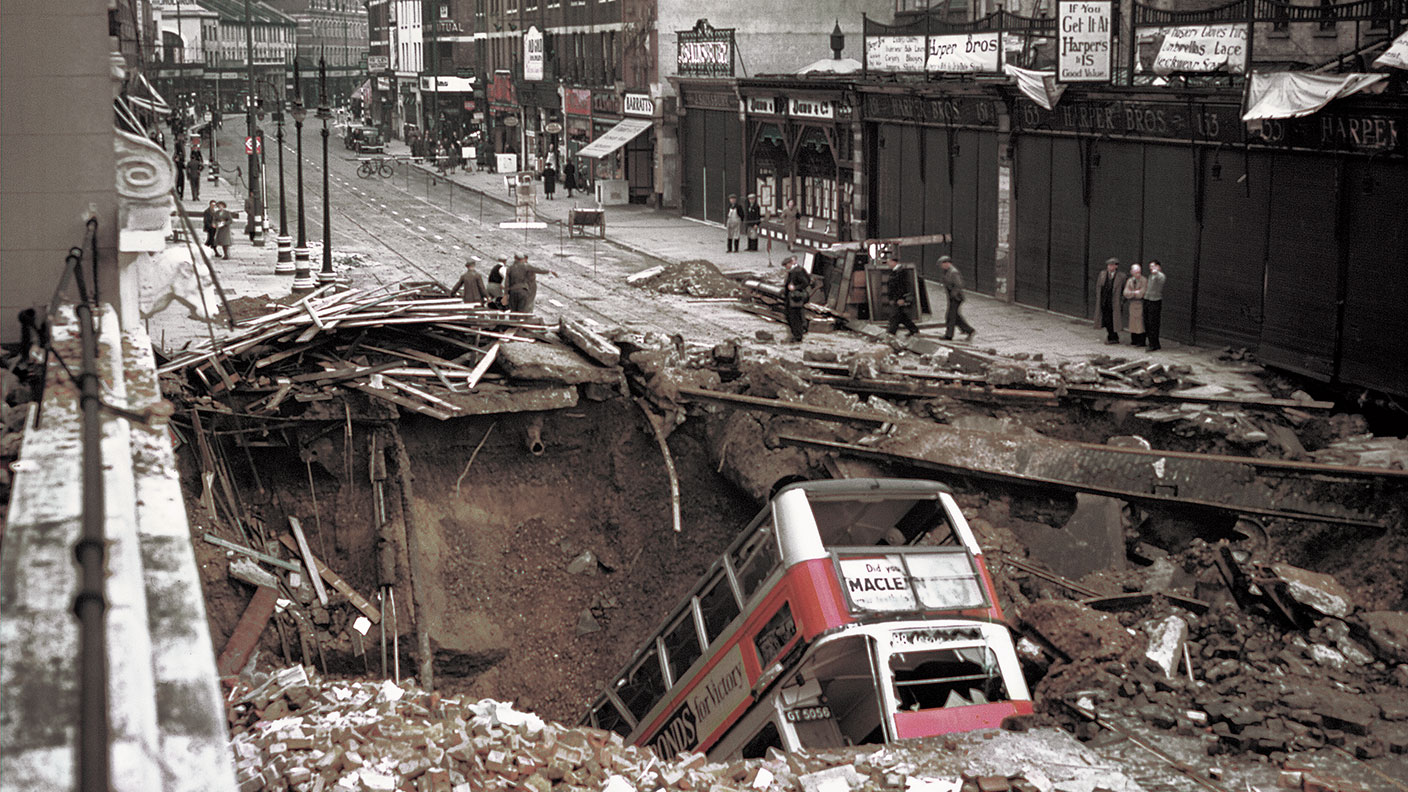
Get the latest financial news, insights and expert analysis from our award-winning MoneyWeek team, to help you understand what really matters when it comes to your finances.
You are now subscribed
Your newsletter sign-up was successful
Want to add more newsletters?

Twice daily
MoneyWeek
Get the latest financial news, insights and expert analysis from our award-winning MoneyWeek team, to help you understand what really matters when it comes to your finances.

Four times a week
Look After My Bills
Sign up to our free money-saving newsletter, filled with the latest news and expert advice to help you find the best tips and deals for managing your bills. Start saving today!
After failing to take out Britain's fighter command in the Battle of Britain, the Luftwaffe changed tactics. It decided it would terrorise Britain's population into submission. And so on this day in 1940, it began an eight-month campaign of bombing Britain's main cities – 350 bombers crossed the channel and headed for London, where they dropped 300 tonnes of explosives.
Day and night (mainly night) the bombs fell. On that first night, almost 2,000 people were killed or wounded. Within a month, 6,000 were dead, and by the end of the campaign, 40,000 had lost their lives.
In total, London was attacked 71 times. But it wasn't just the capital that suffered. Other cities were targeted too, most famously Coventry, laid to waste on 14 November. The ten-hour raid was the biggest the world had ever seen.
MoneyWeek
Subscribe to MoneyWeek today and get your first six magazine issues absolutely FREE

Sign up to Money Morning
Don't miss the latest investment and personal finances news, market analysis, plus money-saving tips with our free twice-daily newsletter
Don't miss the latest investment and personal finances news, market analysis, plus money-saving tips with our free twice-daily newsletter
Despite the danger, the Queen Mother spent her days in London – though her nights were spent in the relative safety of Windsor Castle – and took many trips to the East End to survey the damage and lift the spirits of the people. And on 13 September, Buckingham Palace was hit. The bomb "hurtled past us and exploded with a tremendous crash in the quadrangle", wrote the Queen Mother. "I am glad we have been bombed", she said. "Now we can look the East End in the eye."
Though people today talk about the Blitz spirit, it wasn't all stiff upper lips and making do. It led to a big rise in crime, and made a lot of wrong 'uns wealthy. Career criminal Billy Hill was one. “Money was easy”, he said. “The villains were loaded with dough and we were all busy.”
Britain's wartime black market “was the most fantastic side of civilian life in wartime”, said Hill. “Make no mistake. It cost Britain millions of pounds. I didn't merely make use of the black market. I fed it.”
The Blitz finally ended in May 1941, when the bombers headed east to concentrate on softening up Russia for invasion.
Get the latest financial news, insights and expert analysis from our award-winning MoneyWeek team, to help you understand what really matters when it comes to your finances.

-
 Should you buy an active ETF?
Should you buy an active ETF?ETFs are often mischaracterised as passive products, but they can be a convenient way to add active management to your portfolio
-
 Power up your pension before 5 April – easy ways to save before the tax year end
Power up your pension before 5 April – easy ways to save before the tax year endWith the end of the tax year looming, pension savers currently have a window to review and maximise what’s going into their retirement funds – we look at how
-
 31 August 1957: the Federation of Malaya declares independence from the UK
31 August 1957: the Federation of Malaya declares independence from the UKFeatures On this day in 1957, after ten years of preparation, the Federation of Malaya became an independent nation.
-
 13 April 1960: the first satellite navigation system is launched
13 April 1960: the first satellite navigation system is launchedFeatures On this day in 1960, Nasa sent the Transit 1B satellite into orbit to provide positioning for the US Navy’s fleet of Polaris ballistic missile submarines.
-
 9 April 1838: National Gallery opens in Trafalgar Square
9 April 1838: National Gallery opens in Trafalgar SquareFeatures On this day in 1838, William Wilkins’ new National Gallery building in Trafalgar Square opened to the public.
-
3 March 1962: British Antarctic Territory is created
Features On this day in 1962, Britain formed the British Antarctic Territory administered from the Falkland Islands.
-
10 March 2000: the dotcom bubble peaks
Features Tech mania fanned by the dawning of the internet age inflated the dotcom bubble to maximum extent, on this day in 2000.
-
9 March 1776: Adam Smith publishes 'The Wealth of Nations'
Features On this day in 1776, Adam Smith, the “father of modern economics”, published his hugely influential book The Wealth of Nations.
-
 8 March 1817: the New York Stock Exchange is formed
8 March 1817: the New York Stock Exchange is formedFeatures On this day in 1817, a group of brokers moved out of a New York coffee house to form what would become the biggest stock exchange in the world.
-
7 March 1969: Queen Elizabeth II officially opens the Victoria Line
Features On this day in 1969, Queen Elizabeth II took only her second trip on the tube to officially open the underground’s newest line – the Victoria Line.
